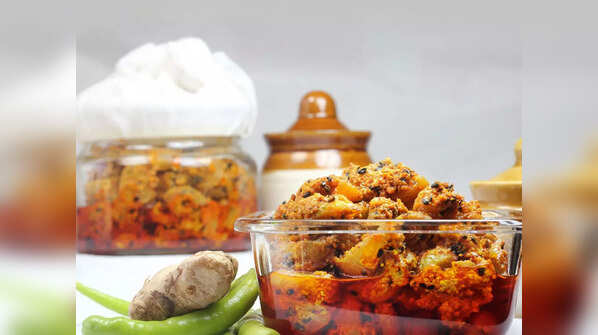Can homemade pickles cause infections?

Can homemade pickles cause infections?
It is impossible to imagine Indian meals without a delicious, spicy, tangy and flavorful pickle. This is because pickles reflect the rich culinary heritage and taste preferences of a region. In most Indian households, pickles are traditionally made with veggies, fruits, spices, and herbs that give this desi staple a unique taste and flavor. But do you know this love of yours can also land you in trouble and may lead to severe food allergy and infection? Shocking, right? Read on to know more about it!

Why homemade pickles?
Traditionally, we all grew up eating homemade pickles, but little do we know that these simple pickles can be the breeding ground for bacteria. But how does it happen? Well, homemade pickles are made by following age-old methods, which often lack proper hygiene, controlled environment and the right ingredients to preserve the pickles, which may lead to the development of bacteria known as Clostridium botulinum. Here’s all you need to know about it.

What happens when you eat old pickles?
Clostridium botulinum is a bacterium that can cause botulism, which is a serious foodborne illness caused by improperly stored and fermented foods, including homemade pickles, which can lead to the growth of the bacteria and the production of a deadly toxin.

Things to keep in mind
Pickling methods at home are often done without chemical-based preservatives, but this can often lead to risk of infection. However, there are certain things to keep in mind while making pickles at home. If you are making a pickle using vinegar, then it may create an acidic environment that inhibits the growth of many bacteria, including Clostridium botulinum, especially if it is not stored properly and if the pH level isn't below 4.6. However, despite all this, bacteria can still grow and produce the toxin due to poor handling or contamination during preparation for pickles.

Safe Pickling Practices
To minimize the risk of infection, practice safe pickling. Use fresh materials and clean utensils at all times. When fermenting pickles, brine them and watch for changes. When using vinegar, make sure that the acidity is high enough to inhibit bacterial growth. Also, store pickles in sterilized containers and lids, and refrigerate pickles when needed to slow down fermentation and prolong shelf life.









